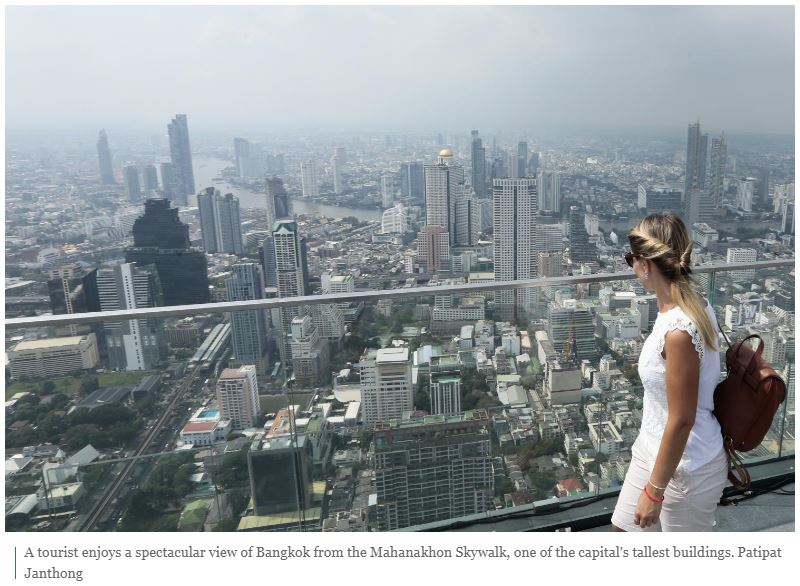Thailand: Bangkok ranked second best city for digital nomads
Bangkok is the world’s second best city in which to work as a digital nomad because of its mix of accommodation, WiFi spots, transport and cuisine, according to a new study by the UK-based flexible working solutions provider The Instant Group.
The study revealed Bangkok was only surpassed by Lisbon, Portugal in the rankings. Bangkok’s impressive position was attributed to delectable local food, the availability of over 15,000 high-speed WiFi spots, stellar transport options as well as the cheapest accommodation available globally, averaging £27 (1,174 baht) a night for an Airbnb.
Key factors for flexible nomadic workspaces are affordability, weather, broadband speed, scenery and transport, with Bangkok scoring well in all these categories.
Many major tourist hotspots were ranked comparatively low on the list, including London, Paris and Venice which all appeared far below several unexpected winners such as Thessaloniki, Gothenburg and San Jose.
Meanwhile, over half the cities assessed in the study’s top 60 are in Asia. Cities like Seoul, Kuala Lumpur, Singapore and Hong Kong offer captivating travel experiences, scenery and food alongside stellar connectivity, infrastructure and a manageable cost of living, the study notes.
Demand for flexible office space in some cities, such as Singapore and Hong Kong, was high as more people are looking to new ways of utilising workspaces, finding creative co-working spaces, meeting rooms and serviced offices to work from while travelling.
For connectivity, Singapore boasted the fastest average broadband speed in the study, recorded at 256 Mbps, while Jakarta has over 97,000 WiFi hotspots across the city.
There were already 35 million digital nomads worldwide in 2021, with the trend being driven by technology, growing demand for flexible workspaces and the increasing adoption of hybrid work.
Some digital nomads only travel for a few months while others did it for a number of years. The study suggests that 80% of digital nomads prefer to stay in one location for 3-9 months.
Advances in technology, remote working and workplace culture mean that by 2035, a billion people could be living and working as digital nomads.
According to predictions, this global nomadic workforce will account for one in every three employees.
Plenty of careers are amenable to the lifestyle of a digital nomad. More than half work in digital marketing, computer science, creative industries or copywriting and design, but this only scratches the surface of the range of jobs that could be carried out by remote workers.
Anything that can be carried out behind a screen could be done by a digital nomad, whether that is insurance brokering, providing nutritional advice, or human resources.
Trends in commercial property reflect the general movement towards increased workplace flexibility.
The Instant Group’s market forecast showed that flexible workspace as a proportion of the total office market would grow from 5% to almost 13% by 2025.
As the role of the office changes and flexibility increases globally, more people will be able to travel and work from virtually any location.
Source: https://www.bangkokpost.com/business/2331198/bangkok-ranked-second-best-city-for-digital-nomads


 English
English




